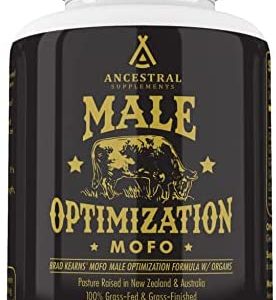
We used to hear a lot about “work-life balance.” In the face of the Covid pandemic, we hear more about “the great resignation” and “relationship breakdown.” Yet, as things breakdown, something new is being born. People haven’t given up on work, intimacy, or communion with our deep selves, but we are looking for something more than our dysfunctional society has been offering us.
On December 21, 2021, my wife, Carlin, and I celebrated my 78th birthday. As we’ve gotten older, each day, each moment, is a gift. I make my wife breakfast each morning and bring it up to her. We greet each other with a fist-bump and our current affirmation, “High five, we’re alive!” With the Coronavirus still circulating world-wide, we continue our healing practices.
Last year was a challenge for most people we know. For us, during 2021, fourteen close friends and family died. Fortunately, no one in our immediate family of five grown children, seventeen grandchildren, and two great grandchildren, left us. Our daughter, Angela, will be visiting soon. We’re celebrating her 50th birthday. I will smile at the pictures of her as a little girl. Now she’s a mother of three sons and a daughter.
I’ve been the CEO and VHS (visionary, healer, scholar in residence) of a one-person company called MenAlive since November 21, 1969. That was the day our son, Jemal, was born and I made a promise to him that I would do everything I could to be a different kind of father than my father was able to be for me and help create a world where men were fully involved with their families throughout their lives. MenAlive has been my window to the world. I help men, and the women who love them, do three things: To live fully authentic lives, to love deeply and well, and to make a positive difference in the world.
Internationally renowned poet and author David Whyte calls these three essential life challenges,
“The Three Marriages.”
He says,
“Each of the three marriages is nonnegotiable. They cannot be ‘balanced’ against one another…Each of the marriages represents a core conversation with life that seems necessary for almost all human beings and none of the marriages can be weakened or given up without a severe sense of internal damage.”
Until I read Whyte’s book, The Three Marriages: Reimaging Work, Self and Relationship, I hadn’t thought of my relationship to work and self as a marriage. But after reading the book, it truly fits my experiences over these many years. Whyte offers a few introductory words on this word marriage.
“Despite our use of the word only for a committed relationship between two people,”
says Whyte,
“in reality everyone is committed consciously or unconsciously to three marriages.”
He goes on to say,
“There is that first marriage, the one we usually mean, to another; that second marriage, which can so often seem like a burden, to work or vocation; and that third and most likely hidden marriage to a core conversation inside ourselves. We can call these three separate commitments marriages because at their core they are usually lifelong commitments and, as I wish to illustrate, they involve vows made either consciously or unconsciously.”
When I read the words about the unconscious vows we make, I was transported back in time to our small kitchen in our house on Hesby street, in Sherman Oaks, California. I was four years old and I still have vivid memories of my mother and three women friends in the neighborhoods talking about their husbands. I can’t remember the words, but I can’t forget how they impacted me.
They were all talking about their husbands and their inability to provide adequately for their wives and families. One woman complained that her husband was out of work and underfoot. “It’s like having another child in the house,” she lamented. Another said her husband never made enough money to buy the things she felt their children needed. “Muni, can’t seem to find work,” my mother said of my father. “Since we moved from New York, he’s been trying to break into the television industry. He keeps writing proposals for shows, but the successes have been few and far between.”
Sitting in the corner listening, their laments about their husbands were like knives in my soul. The tone of their voices—a combination of sadness, pity, and disdain—enraged me. In my four-year-old’s mind, I made a vow to myself: I will die before I ever let women talk about me like they are talking about my father and their husbands. No matter what, I will never be out of work.
I got my first job when I was eight years old selling Christmas cards to the neighbors. I had a big book I carried around each year with sample cards. I would take orders, collect money, send for the cards, and deliver them. When I was ten, I got a paper route. I made enough to buy some things I wanted for myself, buy a present for my mother, and put some in savings for college which my parents insisted I do.
I fulfilled my promise to “never be out of work” until I was 56 years old and I lost my job at the Long Valley Health Center where I was the main counselor. I was ready to leave after being there for seven years, but still fell into a depression that surprised me. My childhood commitment to work was still operating in my subconscious mind.
There was another dynamic operating in those traumatic years of childhood that involved the third marriage to find and express the core of my being, my unique self as a person. By the time I was five years old, my father’s worry at not being able to find work to support his family had turned into a full-blown depression. He finally took an overdose of sleeping pills and was committed to the state mental hospital in Camarillo.
In my child mind, I felt somehow responsible for his breakdown and when my uncle wanted me to accompany him every Sunday to visit my father, I joined him. At the time, like my experiences with my mother and her friends, the visits were traumatic, but now seem the beginnings of my calling in life to heal men and the women who love them.
Psychologist James Hillman describes his kind of inner knowing in his book, The Soul’s Code: In Search of Character and Calling. In mainstream thought, our self is viewed as an interplay of genetics and environment. But Hillman believes that this understanding misses something essential, “the particularity you feel to be you.”
He describes what he calls his “acorn theory,” which holds that each person bears a uniqueness that asks to be lived and that is already present before we are born, it is our true self. It is our job in life to tune into that true self and we have support to find and be guided by it.
“The soul of each of us is given a unique daimon before we are born,”
says Hillman,
“and it has selected an image or pattern that we live on earth. The soul-companion, the daimon, guides us here.”
It is that inner guidance that helps us unite the three marriages, that helps us bring together our true selves, our true love, and our true work. Hillman says that we must attend very carefully to childhood to catch early glimpses of the daimon in action. I came to see that what I had originally viewed as childhood traumas—the women putting down the men and my father’s breakdown—could be understood as my daimon guiding my journey.
Hillman says there are practical implications that follow:
“(1) We must recognize that the call from our daimon is a prime fact of human existence; (2) We must align our lives with it; (3) We must find the common sense to realize that accidents, including the heartache and natural shocks the flesh is heir to, belong to the pattern of the image, are necessary to it, and help fulfill it.”
Bringing the three marriages together is not easy.
“In the midst of a seemingly endless life,” says David Whyte, “we can spend so much time attempting to put bread on the table or holding a relationship together that we often neglect the necessary internal skills which help us pursue, come to know, and then sustain a marriage with the person we find on the inside.”
At this stage of life, the “three marriages” are coming together for me. I discussed my work life and personal life in my book 12 Rules for Good Men and my love life in the book, The Enlightened Marriage: The Five Transformative Stages of Relationships and Why the Best is Still to Come and in articles, How to Save Your Midlife Marriage and “Confessions of a Twice-Divorced Marriage Counselor.”
I realize The 5 Stages of Love that I apply to my intimate relationship life can also help us integrate all three marriages of work, self, and relationships. In my book, The Enlightened Marriage and my article, “The 5 Stages of Love: Why Too Many Stop at Stage 3,” I describe Disillusionment as a third stage that is the transition from a naïve, immature, stage of love, to one that leads to real, lasting, love.
I believe we go through a similar process of immature love in relationship to our work and to ourselves. Over many years, we face many challenges, and must deal with many disillusionments before we finally get our lives together.
“What we desire in the three marriages,” says David Whyte, “is a sense of profound physical participation with creation, the reconfirmation that we are not alone in the world and the reminder that there is a larger context to existence than the one we have established for ourselves.”
Learning to love an intimate partner, learning to love our work, and learning to love ourselves is a life-long endeavor.
“This is the eternal to which we commit in each of the marriages,” says Whyte, “the self-forgetful self, intimately joined to a world other than the one it has created for itself.”
Whyte concludes with his poet’s perspective on the three marriages.
“At that frontier we can look around and find, without too much stress or willful action, without feeling inadequate to the many challenges that each of the marriages holds, that we are already living the courageous conversation that holds everything together.”
I look forward to your comments. If you appreciate articles like these, I hope you’ll join me here. If you’d like more information about the 5 stages of love, drop me a note to Jed@MenAlive.com and put “More about the 5 Stages” in the subject line.
The post Embracing The Three Essential Marriages: Our Intimate Partner, Our Work, Our Selves appeared first on MenAlive.




